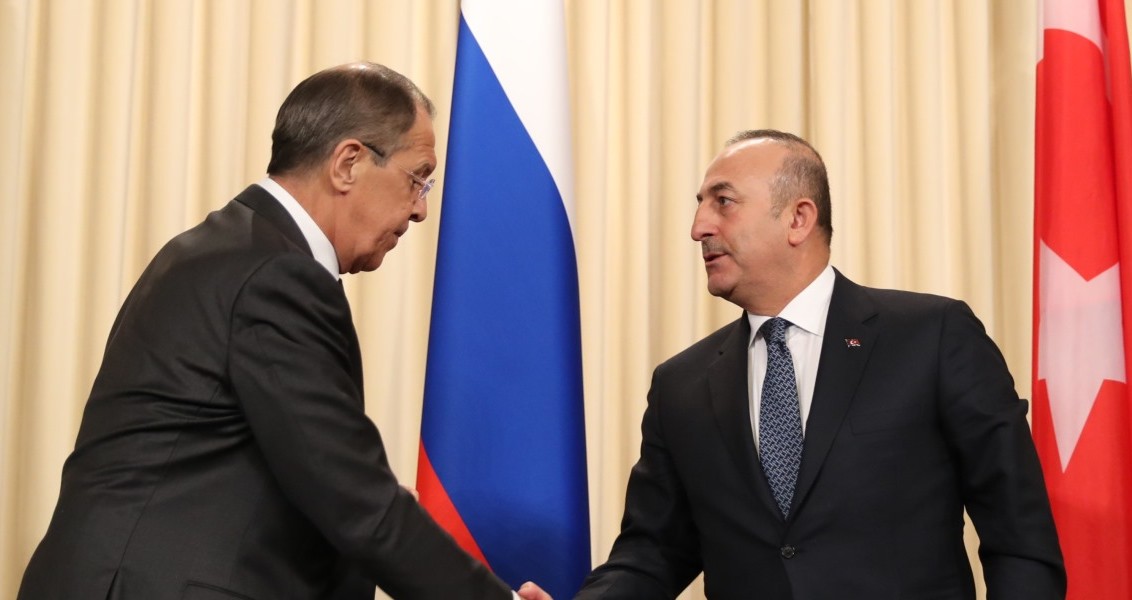
Now Do You Understand What Turkey Is Doing?
Turkey is not conducting foreign policy in a stagnant region. It has to be aware at all times of the developments and shifting balances of power.
Share
At the beginning of 2016, The Economist published an article called "Foreign Policy: Alone in the World." In the article, it was expressed that at one point, Turkey was a weak country with good relations with the West, whereas now, despite being a country to which more attention was being paid, its relationship with the West had deteriorated.
The "Turkey's isolation" thesis has been at the center of analyses on Turkish foreign policy for quite some time now. Alongside this, Turkey's position and its approach to regional problems is heeded by even the most critical analyses, and compared, for example, to the beginning of the 1990s with the end of the Cold War; attention actually has to be paid to it.
The point that needs to be emphasized with the idea of "Turkey's isolation" is that it is no longer seen as a "faithful ally" of the countries of the European Union and the U.S. It is a reality that Turkey has entered a period of searching for autonomy in its foreign policy with its AK Party administrations. Another reality is that the process for membership in the EU is no longer ongoing with the same passion as before, it is rather handled with an approach focused on national interest. The consideration of Turkish-U.S. relations not as one of a superior and subordinate, but as a strategic alliance, is another reality.
The search for autonomy is becoming a subject in Turkish foreign policy, and this is not a situation comprised only of a theoretical choice. Above all else, the U.S. becoming ineffective south of Turkey, and the EU becoming ineffective north of Turkey, have sped up Turkey's search for autonomy.
The U.S. intervened in the Syria crisis by using justifications such as "lessening Iranian influence" and "lightening the load on Israel" at the beginning. It promised to support the opposition in changing the regime. However, it did not keep its word. From the vacuum that was created, terror organizations like Daesh and the PKK's Syrian extensions benefited. One of the most important actors to use this vacuum was, undoubtedly, Russia. Turkey was left directly to face this mess alone; the U.S.'s foreign policy fantasy landed Turkey with a massive bill. Yes, nearly 3 million refugees, and, even more devastating, the import of truly bloody terrorism!
What's more, during this period, the PKK, which carried out 20 of the 26 suicide bomb attacks that occurred in Turkey's big cities, got its guns, which it has been using to kill hundreds of civilians and security forces in the southeast region, from the U.S.. Lastly, the U.S. gave heavy weaponry to the PKK using the excuse of the "Raqqa operation." And then what happened? The U.S. announced that it was postponing the Raqqa operation. What happened to those guns? Those guns are currently a part of the PKK inventory and are waiting to be used against Turkey. In addition to this, nearly 1,000 Daesh militants who heard that the operation had been postponed have moved to al-Bab, to fight against Turkey. Yesterday, 14 Turkish soldiers were killed during the siege on al-Bab due to suicide attacks carried out by Daesh militants.
In Turkey's south, the U.S., and in its north, the EU, have been cut out. In 2013, the EU, with U.S. support, worked hard to overthrow the administration that was regarded as being "pro-Russian" in Ukraine. The main purpose had been to break Russian influence over Ukraine and to surround Russia and lock it in the continent. But this was unsuccessful. In the end, Russia annexed Crimea. EU countries simply watched. The only thing that the U.S. could do was to lower oil prices and encircle Russia economically. However, this did not stop Russia's regional spread.
Turkey is not conducting foreign policy in a stagnant region. It has to be aware at all times of the developments and shifting balances of power. What's more, Turkey does not have to take into account the perspectives of the outgoing administrations in the EU and the U.S. which are going through massive political transformations.
Do you think that those who made the "Turkey is becoming isolated" comment at the beginning of 2016 see now, at the end of 2016, that Turkey has been conducting foreign policy by basing it on its own national interests and the new regional situation?
[Daily Sabah, December 23, 2016]
Tags »
Related Articles








